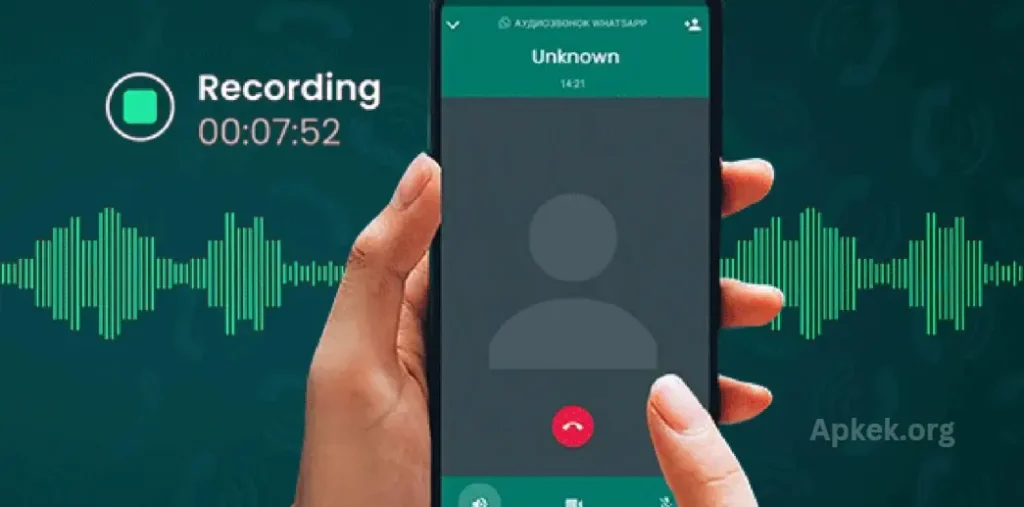most conversations—whether casual or important—now happen on mobile devices. Social media platforms have become central to how we connect, and WhatsApp stands out as one of the most widely used tools for communication.
From quick messages to long voice and video calls, people are relying more on WhatsApp to stay in touch. As this trend grows, having a better, more reliable WhatsApp experience isn’t just a preference-it’s a necessity.
That’s where enhanced features and tools come in, including call recording apps. These can help you keep track of key conversations, whether for personal reference or professional use.
We’ve covered all the essentials in our latest article, including a powerful Call Recorder application as part of the package. Visit our website and take a closer look-you’ll find insights that matter.
Why Use WhatsApp Call Recorder App?
Mobile conversations now dominate how we connect—personal talks, business deals, money transfers, emotional moments, even disagreements all happen through calls. Recording these conversations becomes essential, not just for memory, but as solid proof when needed.
Call recorder apps help store these important talks. Whether it’s sharing funds with a friend or sorting out a serious issue, having that conversation saved can protect you. Words exchanged over a call carry weight, and sometimes those words come back as support during misunderstandings or conflicts.
Social media platforms like WhatsApp make recording even more important. With so much communication shifting to WhatsApp voice and video calls, challenges in recording increase. Standard recording tools often fail here, pushing the need for dedicated apps.
Searching for a powerful, secure call recorder tailored for WhatsApp and other platforms becomes a smart move. Our latest article explores why call recording matters and recommends a reliable app to get the job done—clear, private, and always ready when you need it.
Why Record WhatsApp Calls?
There are various reasons users might want to record WhatsApp calls:
- Business communication: For interviews, client meetings, or project discussions, having a record of conversations can be valuable.
- Evidence: In cases of disputes or harassment, a call recording may serve as proof.
- Memory aid: Users might want to keep a call for future reference, especially for instructions or important personal information.
Does WhatsApp Have a Built-in Call Recorder?
No, WhatsApp does not offer a native call recording feature. This omission is primarily due to privacy laws in different countries, which often restrict the recording of calls without consent.
As a result, users have to rely on third-party tools or workarounds to record WhatsApp calls.
You may also like it:
Offline Chat for WhatsApp, No Last Seen, Blue Tick!
Premier Deleted Messages Recovery App
How to Record WhatsApp Calls
1. For Android Users
- Using a screen recorder: Some Android phones come with built-in screen recording features (like Samsung or Xiaomi), which can record audio during WhatsApp calls.
- Third-party apps: Apps such as Cube Call Recorder or Call Recorder – ACR support VoIP recording, including WhatsApp. However, functionality may vary depending on your device and Android version.
- Root access: Some advanced users root their phones to bypass system limitations, though this voids warranties and poses security risks.
2. For iPhone Users
iOS is much more restrictive than Android when it comes to recording calls. Here are a few options:
- Using a Mac: Connect your iPhone to a Mac and use QuickTime Player to record the screen and audio.
- External recorder: Devices like the RecorderGear PR200 can be used to record WhatsApp calls by connecting via Bluetooth.
- Jailbreaking: Not recommended due to security and legal risks, but it can enable additional app permissions.
Important Legal Considerations
Recording calls, including WhatsApp calls, is subject to local privacy laws:
- In the United States, some states require one-party consent (only one participant must agree to the recording), while others require all-party consent.
- In Europe, under GDPR, consent and data protection are crucial. Unauthorized recording could lead to legal penalties.
- In India and many Asian countries, laws are evolving. It’s safest to inform all participants before recording a call.
To stay compliant, always get explicit consent from everyone involved in the call.
Privacy and Ethical Concerns
Beyond legality, ethical questions arise:
- Is it fair to record someone without their knowledge?
- How will the recording be stored or shared?
- Could the recording be misused?
These considerations highlight the importance of transparency and responsibility when using call recording tools.
Frequently Asked Questions
Does WhatsApp have a built-in call recording feature?
No, WhatsApp does not include a built-in feature for recording voice or video calls. Users must rely on third-party apps or external tools to record calls.
Are WhatsApp call recordings stored automatically?
Only if you’re using a recording app that has been configured properly. Most apps allow you to choose whether to save recordings automatically or manually.
Will the other person know if I record a WhatsApp call?
No, WhatsApp doesn’t notify users if they are being recorded by third-party tools. That’s why informed consent is strongly recommended (and often legally required).
Can WhatsApp ban my account for recording calls?
As of now, WhatsApp has no specific policy against users recording calls using external tools. However, if you’re using modified versions of WhatsApp (like GBWhatsApp), you risk a ban.
Conclusion
Recording WhatsApp calls can be a useful feature for many users—whether for preserving important conversations, business discussions, or legal evidence. However, since WhatsApp does not offer a built-in recording function, users must rely on third-party apps or manual workarounds, especially across different devices like Android and iOS.
While it is technically possible to record WhatsApp voice and video calls, doing so comes with legal, ethical, and privacy responsibilities. Laws vary by country or region, so it’s essential to always obtain clear consent from all parties involved before recording.

